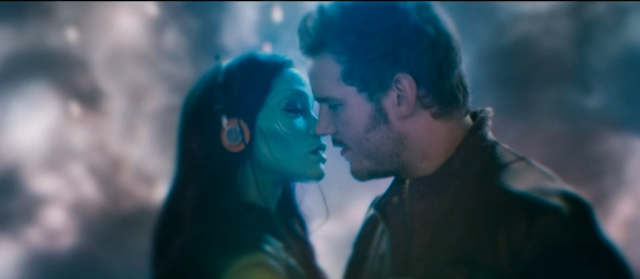As “Guardians of the Galaxy” caps off an improbably successful trilogy, the
ragtag heroes carry several lessons for the granddaddy of Marvel super-teams,
Fantastic Four, as the studio embarks on a third stab at getting that
foundational title right.
Twentieth Century Fox, which wound up with movie rights to
the quartet, adapted Stan
Lee and Jack
Kirby’s flagship comic in 2005, then rebooted it a decade later.
Neither entirely worked (although the first did well
enough to merit a sequel), which was why attention almost immediately turned to
Fantastic Four, as well as X-Men, when Marvel regained those rights through
parent Disney’s acquisition of Fox’s entertainment assets in 2019.
Marvel’s long-awaited take on a “Fantastic Four” movie is
now scheduled
for 2025, and has kept the internet abuzz of late with casting rumors. Yet
no amount of star power (or talented unknowns, for that matter) will lead to
victory for a film that fails to master the delicate art of introducing a team
of superheroes, which remains perhaps the most daunting challenge in the
comic-book-movie realm, 15 years into the hit-laden run that Marvel launched
with “Iron Man.”
The original “Guardians,” somehow, bucked that trend,
building toward this third installment, which feels like a true climactic
chapter, made more so by director James
Gunn heading off to steer the ship at Marvel rival DC (which, like
CNN, is a unit of Warner Bros. Discovery).
To understand how “Guardians”
triumphed, and what “Fantastic Four” can glean from that, it’s helpful
looking back to what defined and distinguished the original comics, and indeed
Lee and Kirby’s staggeringly
productive collaboration during the early 1960s.
For starters, the cosmically irradiated heroes featured
one member, the Thing, who hated what he had become, having been transformed
into a monster. He frequently feuded and fought with his teammates – Mr.
Fantastic, the Invisible Woman (nee Girl) and the Human Torch – who also
grappled with issues of being public figures, no secret identities required.
Those early Marvel comics felt real and relevant, in a way
that the genre hadn’t until then, and that spoke to a generation whose lives
would be rattled by the turbulence of the ’60s.
Strictly as
entertainment, the 2005 “Fantastic Four” had its moments – including the
Thing-Human Torch relationship as played by Michael Chiklis and a pre-Captain
America Chris Evans – but didn’t possess much of a “wow” factor. The same went
for a disappointing sequel featuring the Silver Surfer, mostly squandering one
of Kirby’s more visually striking and out-there creations.
The considerably darker reboot upgraded the Thing effects
and, with the benefit of hindsight, chose well in picking Miles Teller and
Michael B. Jordan for key roles. Overall, though, the film fell flat, getting
mired in wonky science about interdimensional portals.
“Guardians,” by contrast, prospered in a way “Fantastic
Four” didn’t, capturing a mix of action, familial warmth and no small amount of
silliness. While becoming too campy is always a danger in this genre, humor was
an integral part of the comics and remains as ingrained in the title’s DNA as
those cosmic rays.
“Vol. 3” of the “Guardians” saga leans
heavily into that sense of family, including a squabbling-sibling dynamic
among the characters. The series accomplished that, notably, with heroes that
were particularly obscure and outlandish, including a talking raccoon and a
monosyllabic tree.
Although much of this discussion inevitably tilts toward
the most-engaged fans, there’s a reason Fantastic Four ushered in Marvel
Comics’ storied run in the ’60s and remains a source of fascination now. Marvel
Studios also needs something to excite audiences, after seeing its aura of
box-office invincibility experience
a few setbacks, if not entirely punctured, in the wake of “Avengers:
Endgame.”
Fantastic Four and Guardians of the Galaxy are distinct
concepts, and Marvel must treat them as such. Yet in terms of the big-screen
popularity that has eluded the former and the latter has achieved, “Fantastic
Four” will need to at least broadly emulate those qualities if it hopes to make
the third time the charm.



No comments:
Post a Comment